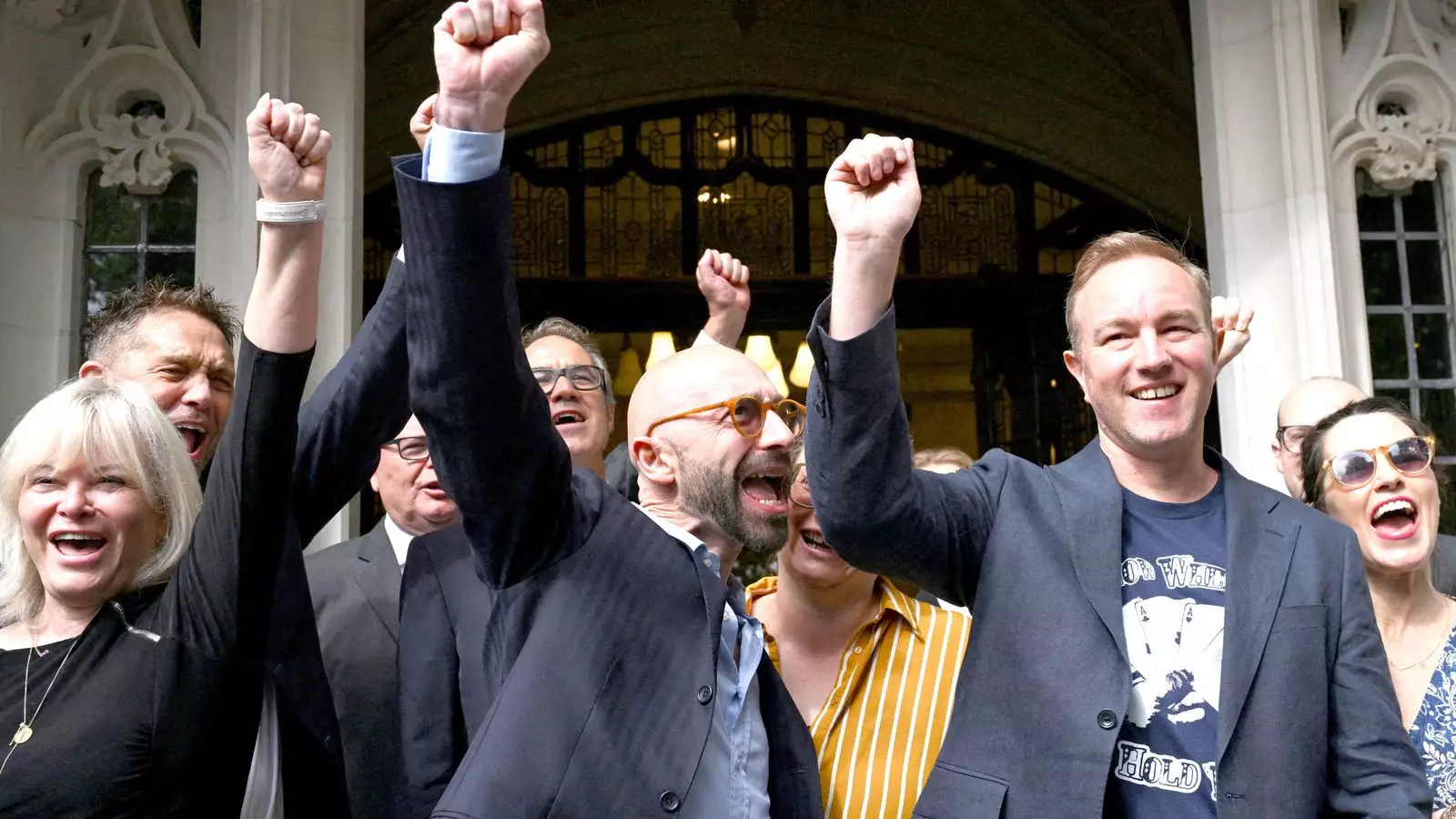The recent overturning of the convictions of Tom Hayes and Carlo Palombo by the Supreme Court signals more than a procedural victory; it exposes the deep fissures within how society and the justice system approach corporate misconduct. For years, Hayes and Palombo were cast as emblematic villains—scapegoats for the finanacial crisis, their prisons serving as symbols of justice served and deterrence enforced. Yet, their recent acquittal challenges this narrative, forcing us to confront uncomfortable questions about the nature of accountability, the role of legal processes, and the societal craving for retribution over genuine reform.
The original convictions, handed down in a climate of intensified regulatory scrutiny, reflected a broader desire to hold individuals responsible for systemic failures. Hayes, a mathematician with autism, was portrayed as the mastermind manipulating crucial market benchmarks to line his own pockets. Sentences as harsh as 14 years underscored the moral outrage over what was seen as blatant greed and deception. Similarly, Palombo’s conviction appeared to solidify the message that even minor players involved in rate manipulation stakes would face severe punishment. However, the Supreme Court’s decision dismantles this simplified narrative, revealing that the legal foundations for their guilty verdicts were flawed.
This turning point exposes the perilous danger of conflating corporate misconduct with individual guilt, especially when convictions hinge on legal interpretations of complex financial practices. The court’s detailed 82-page judgment emphasized errors in jury instructions—a procedural flaw that fatally undermines the fairness of the trial. The justices’ unanimous decision signals a recognition that justice cannot be based on shaky legal assumptions, even in high-profile cases involving white-collar crime. It challenges us to reconsider whether our obsession with punishment for financial wrongdoing sometimes blurs the line between justice and revenge.
The Broader Implications for Society and Financial Oversight
This ruling comes at a moment when society grapples with the aftermath of the 2008 crisis and widespread disillusionment with financial institutions. The narrative of traders as rogue villains is tempting—an easy scapegoat for systemic failures. Yet, the Supreme Court’s stance reveals a critical need to scrutinize the processes by which these convictions were obtained. Are we, as a society, too eager to blame individuals for systemic flaws that enable such behaviors? Or have we placed too much faith in a legal framework that may oversimplify complex financial practices?
By overturning Hayes and Palombo’s convictions, the court highlights the importance of legal precision and protections for defendants, especially in an era where financial products and practices evolve rapidly. It questions whether the criminal justice system is equipped to handle the nuances of modern finance without resorting to oversimplification, which ultimately risks punishing individuals unfairly. The ruling also raises the potential for a broader reckoning—should other convictions related to rate manipulation be revisited and re-examined? There’s an implicit call for transparency, fairness, and a more balanced understanding of systemic flaws versus individual culpability.
However, critics might argue that this decision risks undermining deterrence and accountability—sending a message that innovative or borderline behaviors in finance can escape punishment due to technical legal errors. But what is more destructive: allowing unjust punishments to stand or ensuring that justice is truly fair and grounded in evidence? This case underscores that true justice demands rigor and fairness, especially when lives and reputations are on the line.
Reevaluating the Role of Legal Systems in Financial Crime Cases
The case of Hayes and Palombo should serve as a wake-up call for the entire criminal justice apparatus. It exposes how important it is for courts to thoroughly understand the complexities of financial markets and to provide clear, accurate jury instructions. When legal procedures falter, justice becomes a casualty, and public confidence erodes. Moreover, this incident should inspire a broader conversation about the limitations of criminal prosecutions in tackling systemic issues—whether the manipulation of benchmarks was institutional culture or individual misconduct.
The notion that these traders were merely pawns or scapegoats gains some validation in light of this ruling. Their convictions, seemingly rooted in an overly rigid interpretation of what constitutes illegal conduct, now appear more a product of legal missteps than definitive guilt. This calls into question whether the justice system, in its current form, can genuinely deliver accountability without risking miscarriages of justice.
Furthermore, this development opens political and societal debates about how best to regulate and oversee complex financial markets. Rhetoric often equates tough criminal prosecutions with justice served, but the nuanced reality calls for smarter, more systemic reforms rather than reliance on criminal convictions alone. Ensuring financial stability and integrity must involve regulatory reforms, transparency, and cultural shifts within institutions, rather than just punishing individuals after the fact. The Supreme Court’s decision underscores the importance of distinguishing between genuine wrongdoing and procedural technicalities, emphasizing that justice must be rooted in truth and fairness, not just headlines and show trials.


Leave a Reply